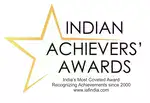How Data Storytelling by Online Survey Companies Can Help Solidify Your Brand Value
Brands that effectively communicate their values can truly connect with their audience on an emotional level. Such brands tend to consistently deliver on their promises and ultimately enjoy stronger customer loyalty, higher market share, and increased profitability as compared to those without a data storytelling practice in place. Establishing and solidifying brand value is crucial for long-term success. One powerful tool that companies can leverage to enhance their brand value is data storytelling. That’s where online surveys come in handy. An online survey company designs and executes online surveys through data processing and tabulation methods to help you gather valuable data, which can act as a catalyst for your company’s branding storytelling strategy. How? Let’s find out.
What is Brand Value, and Why Is It Important?
Brand value refers to the perceived worth of a brand in the eyes of consumers. It encompasses various intangible elements such as reputation, trust, emotional connection, and perceived quality. Brand value goes beyond tangible assets like products or services; it represents the overall strength of a brand in the marketplace. Here’s how it plays an important role for businesses:
- Competitive Advantage: In a crowded marketplace, brand value serves as a crucial differentiator. Brands with strong value propositions stand out from competitors and attract customers who resonate with their unique offerings.
- Customer Loyalty: Building brand value fosters customer loyalty. When consumers perceive a brand as trustworthy, reliable, and aligned with their values, they are more likely to remain loyal, make repeat purchases, and advocate for the brand to others.
- Price Premium: Strong brands command a price premium for their products or services. Consumers are often willing to pay more for brands they perceive as having higher value, translating into increased profitability for the company.
- Resilience: Brands with established value propositions are more resilient to market fluctuations and crises. During challenging times, consumers are more likely to stick with brands they trust, providing stability and sustainability for the business.
- Market Positioning: Brand value plays a significant role in shaping a company's market positioning. A brand with high value can position itself as a leader in its industry, influencing consumer perceptions and shaping market trends.
- Brand Extension Opportunities: Strong brands have the flexibility to extend their offerings into new product categories or markets. Consumers are more receptive to brand extensions from companies they already trust, facilitating expansion opportunities.
- Attracting Talent and Partnerships: Companies with strong brand value attract top talent and strategic partnerships. Employees are drawn to companies with reputable brands, while potential collaborators seek out brands with a strong market presence and positive reputation.
- Long-Term Sustainability: Investing in brand value contributes to long-term sustainability. Brands that focus on building meaningful connections with consumers and delivering consistent value are better positioned to thrive in the long run, even amidst changing market conditions.
Factors That Contribute To Brand Value
Several key factors contribute to the establishment and enhancement of brand value. Here are some of the common ones:
- Brand Identity: Consistent branding elements such as logos, colors, and messaging help create a distinct brand identity that resonates with consumers.
- Brand Reputation: Positive perceptions of a brand's reputation, built through consistent delivery of quality products, excellent customer service, and ethical business practices, enhance brand value.
- Brand Experience: Every interaction a consumer has with a brand shapes their perception of its value. Positive experiences, both online and offline, contribute to brand loyalty and advocacy.
- Brand Authenticity: Authenticity builds trust and credibility with consumers. Brands that authentically communicate their values and mission resonate more deeply with their audience.
- Brand Consistency: Consistency in branding across all touchpoints reinforces brand identity and fosters trust among consumers.
Data Storytelling And Its Evolution
Data storytelling is a powerful technique that combines the analytical power of data with the narrative impact of storytelling to convey insights, trends, and patterns in a compelling and understandable manner. It involves crafting a narrative around data, contextualizing it within a broader objective, and presenting it to an audience in a meaningful way. Data storytelling utilizes not only data analysis and statistics but also data visualization, qualitative and contextual analysis, and effective communication skills to convey complex information. Telling a story with data is crucial for several reasons:
- Contextualization: Data storytelling allows the narrator to place the data within the context of a broader objective or narrative. By framing the data within a compelling story, the audience can better understand its significance and implications.
- Accessibility: Data storytelling helps break down complex data into understandable insights that are accessible to a diverse audience. Regardless of their background, domain expertise, or technical sophistication, audience members can easily grasp the message conveyed through storytelling.
- Engagement: A well-crafted data story captivates the audience's attention and keeps them engaged throughout the presentation. By incorporating narrative elements, visual aids, and interactive components, data storytelling ensures that the audience remains attentive and receptive to the message being communicated.
- Adaptability: Data storytelling allows the narrator to tailor the communication methods to suit the preferences and learning styles of different audience members. Whether they are auditory learners, visual learners, or kinesthetic learners, data storytelling can accommodate various preferences and ensure that everyone stays engaged.
- Comprehensiveness: While data visualizations are a crucial component of data storytelling, they are just one piece of the puzzle. Data storytelling goes beyond visualizations to provide a comprehensive narrative that explains the who, what, why, and how of a broader story. By incorporating industry or topic expertise, as well as effective communication skills, data storytelling offers a more holistic approach to conveying insights.
The practice of storytelling with data has evolved significantly over time, driven by advances in technology and changes in communication methods:
- Historical Perspective: People have always told stories with data, dating back to ancient times. In World War II, for example, "human computers" manually crunched numbers and compiled analysis into tables to inform battlefield decisions.
- Digital Transformation: The advent of digital technology revolutionized data storytelling, making data more accessible and understandable. The transition from analog to digital ushered in the birth of mainframe computers, enabling better understanding and analysis of data.
- Shift Towards Self-Service Analytics: With the rise of self-service analytics platforms, individuals can now analyze data and create visualizations without the need for specialized expertise. This democratization of data analysis has empowered users to uncover insights and tell stories with data more effectively.
- Interactive Visualizations: Traditional reporting systems often fail to convey the full story behind the data. However, with the emergence of interactive visualizations, users can now participate in the discovery process and uncover patterns in the data in real time. Interactive visualizations allow for a more dynamic and engaging storytelling experience, enabling users to explore data more intuitively and interactively.
- Integration of Natural Language Generation (NLG): The integration of NLG technology into data visualization platforms, such as Tableau's partnership with Narrative Science, has further enhanced the storytelling capabilities of data visualization tools. NLG algorithms analyze visualizations and automatically generate insightful narratives, providing deeper context and understanding of the data.
In the past, data was often presented in static reports or spreadsheets, which could be dense and difficult to interpret. The advent of data visualization tools has made it easier to present data in visually engaging formats, such as charts, graphs, and infographics. Today, there is a growing emphasis on weaving data into compelling narratives that resonate with audiences on an emotional level. This approach humanizes data, making it more relatable and impactful as compared to raw numbers.
Benefits of Data Storytelling for Brand Value
Data storytelling offers several benefits for enhancing brand value:
- Engagement: Compelling data stories capture the attention of audiences and keep them engaged, increasing the likelihood of message retention.
- Clarity: By translating complex data into understandable narratives, data storytelling helps clarify key insights and messages for stakeholders.
- Persuasion: Stories have the power to influence beliefs and behaviors. Data-driven narratives can persuade stakeholders to take action or make informed decisions.
- Memorability: Stories are more memorable than raw data or statistics. Brands that tell compelling stories with data are more likely to leave a lasting impression on their audience.
- Differentiation: Data storytelling sets brands apart by showcasing their unique insights and perspectives. It allows brands to stand out in a crowded marketplace.
Role of Online Surveys in Data Collection
Online surveys play a pivotal role in data collection. As a result, it has emerged as a favorite method for any given online survey company. Being a versatile and efficient method, online surveys offer numerous advantages over traditional data collection approaches. They enable organizations to gather valuable insights from their target audience quickly and cost-effectively.
Accessibility and Convenience
Online surveys are easily accessible to a wide range of respondents, regardless of their geographical location or time zone. Participants can complete surveys at their convenience, eliminating the need for in-person interviews or focus groups. The accessibility of online surveys increases the reach and diversity of the data collected, allowing organizations to gather insights from a more representative sample of their target audience.
Cost-Effectiveness
Compared to traditional methods such as telephone surveys or in-person interviews, online surveys are typically more cost-effective to administer. They eliminate the need for printing paper surveys, hiring interviewers, or conducting face-to-face meetings, reducing operational costs for organizations. The best online survey companies often offer a pay-per-response pricing model, allowing organizations to scale their data collection efforts according to their budget and specific research needs.
Anonymity and Privacy
Online surveys provide respondents with a sense of anonymity and privacy, encouraging them to provide honest and candid feedback. Participants may feel more comfortable sharing their opinions and experiences in an online survey format, leading to more accurate and insightful data. Organizations can also implement measures to ensure the confidentiality and security of respondent data, such as using encryption protocols and adhering to data protection regulations like GDPR (General Data Protection Regulation) or HIPAA (Health Insurance Portability and Accountability Act).
Real-Time Data Collection
Online surveys enable organizations to collect data in real time, allowing for timely analysis and decision-making. As responses are submitted electronically, researchers can access and analyze the data instantly, providing valuable insights into consumer preferences, behaviors, and trends. Real-time data collection also allows organizations to track changes in consumer sentiment or market dynamics over time, enabling them to adapt their strategies and tactics accordingly.
Flexibility and Customization
Online survey platforms offer flexibility and customization options, allowing organizations to design surveys tailored to their specific research objectives and target audience. Organizations can customize survey questions, response options, and survey logic to gather the precise information they need. Additionally, online surveys support various question types, including multiple-choice, open-ended, Likert scales, and matrix questions, enabling researchers to capture nuanced insights.
Scalability
Online surveys can be easily scaled to accommodate large sample sizes or multiple waves of data collection. Organizations can distribute surveys to thousands or even millions of respondents simultaneously, leveraging the scalability of online survey platforms to gather comprehensive data sets. Whether conducting a small-scale study or a large-scale market research project, online surveys provide the flexibility to adapt to changing research requirements and organizational needs.
Integration with Data Analysis Tools
Many online survey platforms offer integration with data analysis tools and software, allowing organizations to streamline the data collection and analysis process. Researchers can export survey data directly into statistical analysis software or data visualization tools, facilitating in-depth analysis and visualization of survey results. Integration with data analysis tools enables organizations to derive actionable insights from survey data more efficiently, empowering decision-makers to make informed strategic decisions based on data-driven evidence.
How To Craft Compelling Data Stories
Crafting compelling data stories involves several key steps, which we have listed as follows:
- Identify Your Audience: Understand who your audience is and what matters to them. Tailor your data stories to resonate with their interests and preferences.
- Select Relevant Data: Choose data points that support your narrative and align with your brand's objectives. Avoid overwhelming your audience with too much information.
- Create a Narrative Arc: Structure your data story like a traditional narrative, with a clear beginning, middle, and end. Build tension, highlight key insights, and provide a resolution.
- Use Visualizations Wisely: Incorporate visual elements such as charts, graphs, and images to enhance the storytelling experience. Ensure that visualizations are clear, concise, and easy to interpret.
- Add Context: Provide context and background information to help your audience understand the significance of the data. Use anecdotes, examples, and real-life scenarios to illustrate key points.
- Engage Emotionally: Appeal to your audience's emotions by weaving storytelling elements such as humor, empathy, or suspense into your data narrative. Make your audience care about the data you're presenting.
- Encourage Action: Conclude your data story with a call to action or a clear takeaway for your audience. Inspire them to take the next step or make informed decisions based on the insights you've provided.
Final Word
Data storytelling by global online survey companies offers a powerful way to solidify brand value. They can help you translate data into compelling narratives that resonate with audiences. As a result, brands can better understand their customers, communicate their value propositions, and differentiate themselves in the market. If you want to embrace data storytelling as a strategic tool to strengthen your connection with consumers, drive brand loyalty, and achieve long-term success, always work with a reputable online survey company with proven experience. When it comes to survey programming, no one stands close to Unimrkt Research. Over the years, we have been offering market research services across 90 countries, spanning four continents in a variety of industries. Our expertise in data processing and tabulation has earned us the trust of many, enabling us to establish ourselves as one of the top global online survey companies. As a leading research support company, we follow ESOMAR norms and are certified with the ISO 20252 and ISO 27001 standards. To learn about our research services, call +91 124 424 5210/+91 9870 377 557 or email sales@unimrkt.com. You may also fill out our contact form and our representatives will reach out to you at the earliest.
Quick Enquiry
Customer Service, We Make it Better
Recent Posts
- How to Clarify and Align Your Research Goals for Maximum Impact
- Mining Valuable Data: The Driving Force for an Effective Growth Marketing Strategy
- Speaking the Customers Language: 7 Tips for Meaningful Qualitative Research
- Creating Value for Investors: The Benefits of Primary Market Research
- Utilizing Closed-Ended Questions For Quantitative Market Research
- Capturing the Changing Interests of Millennials Through Qualitative Research
- Refining Unit Economics with Robust Quantitative Market Research
- A Concise Guide to Quantitative Market Research
- 3 B2B Market Research Trends That Could Shape 2024
- Eyes on 2024: Changes That Might Disrupt the Healthcare Industry This Year
- Cracking the Language to Make Survey Questions Inclusive in 2024
- Attracting Investors: How Market Research Can Solidify Your Case
- Solid Foundations: Ways to Enhance Trustworthiness in Qualitative Research
- What Makes CATI Research So Effective?
- Moderator Qualities That Improve Qualitative Market Research
- 5 Consumer Market Trends That Will Define 2024
- What are the strengths of quantitative research?
- How to Make Your Partnership with Primary Market Research Firms Fruitful
- A Quick Guide to Harnessing the Strengths of Quantitative Research
- Advice from Your Research Partner: Don't Compromise Quality on Online Surveys













